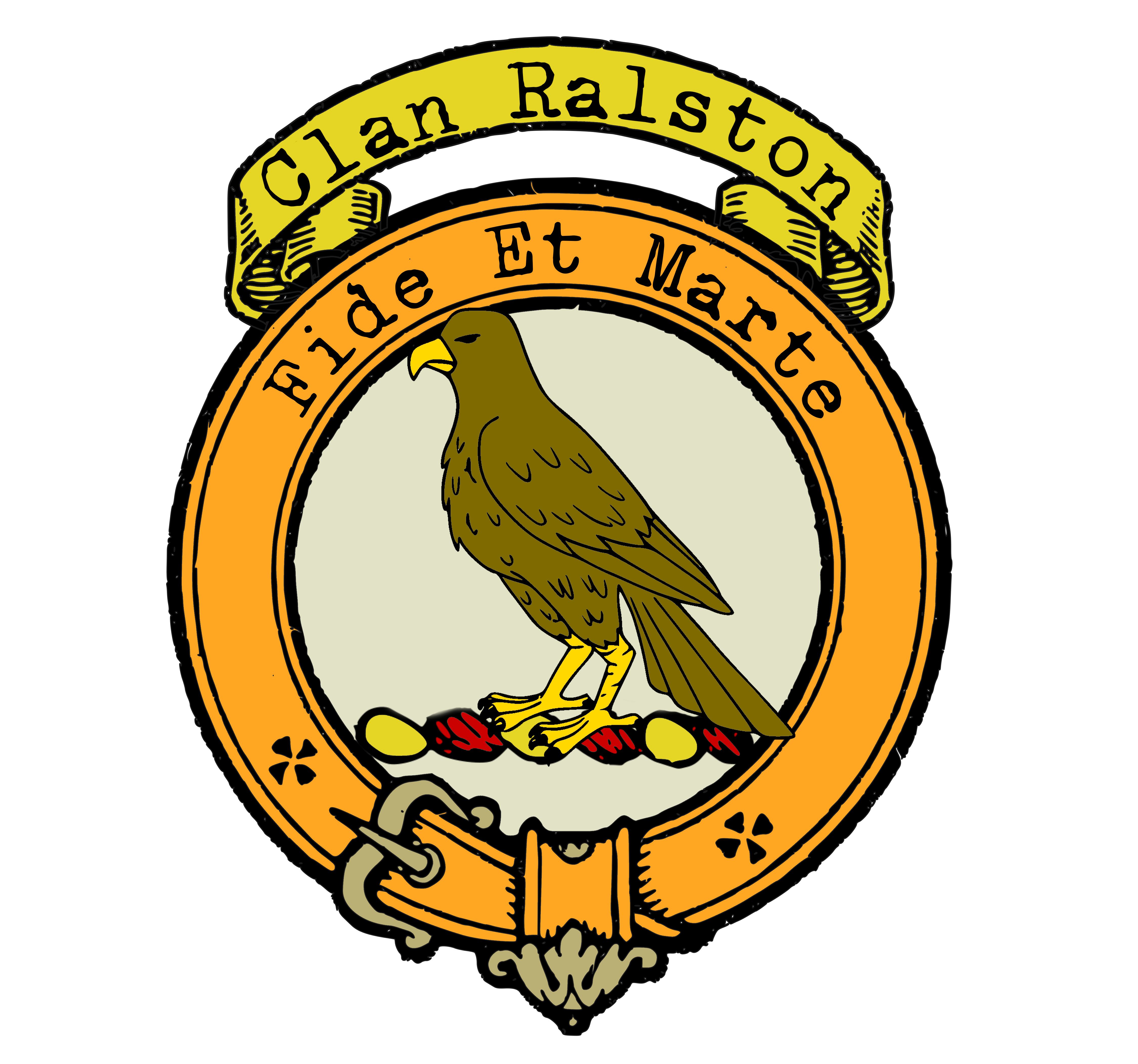The name “Ralston” carries with it the mystique of the Scottish Highlands. Its etymology is a testament to the reverence for nature and the qualities embodied by the wolf. Two likely origins are suggested:
- Northern Origin: Ralston may be a diminutive of “Hrothwolfr,” meaning ‘wolf of fame.’ This signifies qualities of valor, courage, and renown associated with wolves.
- Southern Origin: Another possibility stems from “Ralph,” a diminutive of “Randolph,” which derives from the Old English “raedwulf” or ‘cunning wolf.’ Here, the name conveys attributes of cunning and intelligence akin to a wolf.
These etymological roots reveal a deep connection to the wilderness and the qualities that wolves symbolize in Scottish lore.
The first historical mentions of Clan Ralston date back centuries. Notable individuals with the Ralston surname left their marks:
- Nicholas de Ralston witnessed a charter to the monks of Paisley in 1272, signifying the clan’s early presence in the region.
- Hew de Ralston is recorded in the Ragman Roll of 1296, where he pledged allegiance to King Edward I of England during a tumultuous period in Scottish history.
- Jacobus de Raulyston, “dominus eusdern,” played a pivotal role in the election of an abbot of Paisley in 1346, showcasing the Ralston clan’s influence in local affairs.
- John de Ralston, a prominent member, served as Bishop of Dunkeld and held the prestigious position of Lord High Treasurer of Scotland in 1449. He was also an ambassador to England, signifying his involvement in important diplomatic matters.
The Ralstons continued to make their presence felt in Scotland’s history:
- Hew de Ralston met his end at the Battle of Pinkie in 1547, a testament to the clan’s involvement in the tumultuous times of the Anglo-Scottish Wars.
- The estate of Ralston passed to the Earls of Dundonald in the early eighteenth century, marking a transition in the clan’s fortunes.
- The Ralstons of Warwick Hill, considered cadets to the Lairds of Ralston, sustained the clan’s legacy and influence around Paisley.
While Clan Ralston may not have achieved the same level of fame as some of Scotland’s more renowned clans, its history is a testament to the enduring spirit of the Scottish people. From its origins rooted in wolflike qualities to the contributions of its members to Scottish society, the Ralstons have left an indelible mark on the annals of Scotland’s history. |
Citations:
- Descriptive catalogue of the clan tartans and family tartans of Scotland with a brief note on their antiquity: also roll of the landlords and Baillies of lands in the Highlands and isles, A.D. 1587: roll of the clans; badges of the clans, John Catto and Company, King Street, Toronto, Canada
- Scottish Clan & Family Encyclopedia”, by Collins, HarperCollins Publishers 1994
|


